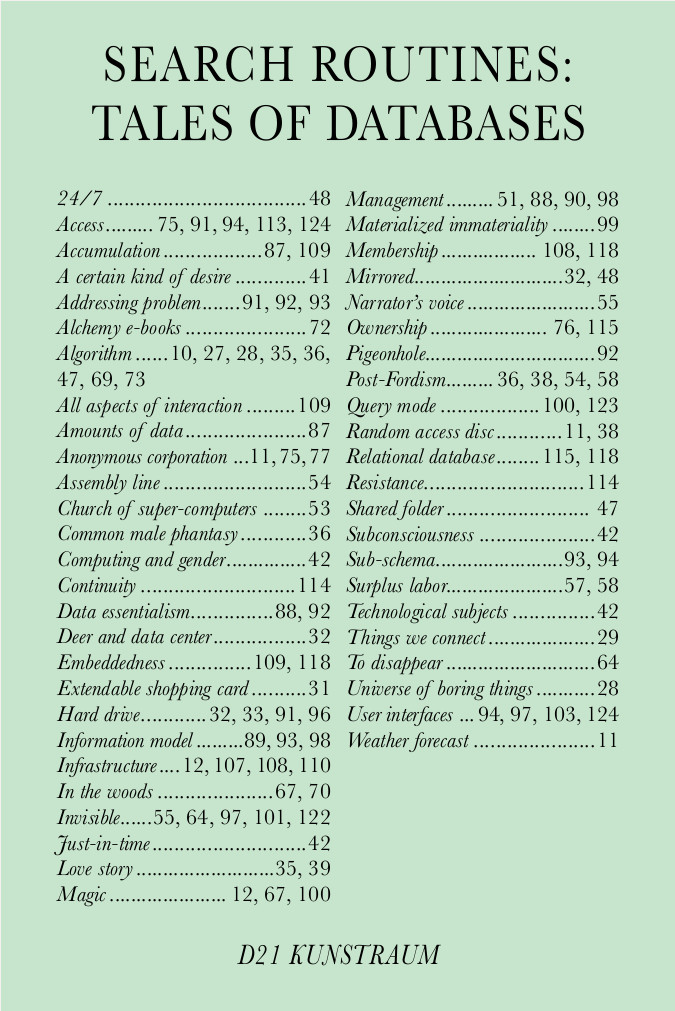Databases pervade our everyday life, they are involved in the individual’s most fundamental activities. Through their near invisibility and resistance to narration they produce subtle forms of collective control and normalization, accompanied by keywords such as: mass surveillance, big data, user generated content, etc.
The publication Search Routines: Tales of Databases enlarges on the topics discussed in the exhibition, the workshop and during the symposium which took place at D21 Kunstraum and sublab hackerspace Leipzig in 2014. A series of interviews with Francis Hunger, Kernel, Pil and Galia Kollectiv and Sebastian Schmieg review artistic strategies like narration or the translation of data and algorithms to adress the invisibility of databases. Reports from the workshops with Heath Bunting and WaiWai tell about the potential of making the invisible visible or simply of hiding oneself from the databases’ range of view. The symposium discusses databases from a sociological and cultural science perspective. In his article, Francis Hunger reflects on databases as infrastructures and points out signs that make the interaction with a database visible. By inquiring the historical technical discussions on database-modeling, Marcus Burkhardt shows the inter-relation of cultural implications with technical structures onto our understanding and use of databases today.


